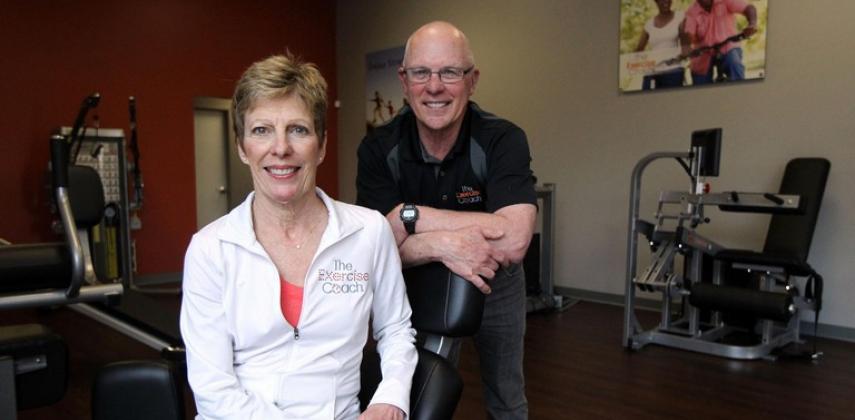An encore career. The second act. The new retirement.
Whatever you call it, baby boomers and seniors have been bitten by the entrepreneurship bug.
Amid economic and social changes, the 55- to 64-year-old age group has had the biggest rise in entrepreneurial activity in the past decade, according to the Ewing Marion Kauffman Foundation, a non-profit US group that pushes entrepreneurship.
"It's a movement of starting your own business, no matter how small," said Elizabeth Isele, co-founder of non-profit Senior Entrepreneurship Works in Washington DC and New York.
Consider Pat and Mary Sculley. They're both 65, and they built successful careers, travelled around the world and raised two children in more than 43 years together.
They had enough of a nest egg to retire. Instead, they took some of their savings to invest in a startup health and wellness franchise operation. They opened the Exercise Coach in two locations in Dallas. They plan to open a third in the next month. Two more are in the works.
At this point in their lives, they no longer wanted to work at a large corporation where other people were making decisions. "We want to be in control," said Pat, who spent 23 years at Electronic Data Systems, including a stint as president of operations in Japan.
The recession uprooted lives and forced many longtime workers out of their jobs. The unemployment rate among workers 55 and up is lower than the national average, but older employees also stay jobless longer.
"There are different ways to volunteer and help non-profits and work part-time, but if you need more income than that, you're up a creek," said Isele, who works with lawmakers and non-profit groups to help senior entrepreneurs build businesses.
Research in 2011 by Civic Ventures, a think tank on boomers, found that one in four Americans aged 44 to 70 are interested in starting businesses or non-profit ventures in the next five to 10 years.
Even before the financial upheaval, workplace and demographic changes were fuelling an entrepreneurial boom among older workers.
Baby boomers represent a huge chunk of the overall population. The Kauffman Foundation study in 2009 predicted that the US might be on the verge of an entrepreneurship boom "not in spite of an ageing population but because of it".
While overall business startup activity in the US dipped last year, the share of entrepreneurship among the baby boomer group has grown from 14.3 per cent in 1996 to 23.4 per cent last year, according to the Kauffman Foundation.
With baby boomers and seniors living longer and healthier, many are moving into second and third careers instead of retiring. The shift reflects a steady decline in lifetime employment at one company that was once commonplace, said Dane Stangler, director of research and policy at the Kauffman Foundation.
Plus, many older workers have the experience and wherewithal to start new businesses. Technology also makes it easier to venture out on their own.
"It's definitely easier to strike out on your own," Stangler said. "You can do a lot of different things, and if you're in your 50s and 60s, you have quite a lot of social capital: a large social network and lot of experience to tap into. Those are key resources for people entering self-employment or becoming entrepreneurs."
After travelling the globe for work, the Sculleys moved to Scottsdale, Arizona, in 2002. Mary continued to work in human resources at big companies, while Pat got a job leading a non-profit. By 2011, Mary said she was ready to leave corporate life and do something else.
The couple had frequently talked about starting a business together, so they looked into entrepreneurship, Mary said. They decided to move back to Dallas and started the due diligence of finding the right business opportunity.
After considering buying an existing small business, they founded the Exercise Coach, which fit their interests in health and wellness. Unlike typical gyms, the Exercise Coach focuses on one-on-one 20-minute strength training with a coach. The Sculleys said their decades of work experience combining operations and human resources have been invaluable as entrepreneurs. Pat added that they're also having fun.
"I tried retirement," Pat said. "And I just got bored." Associated Press


